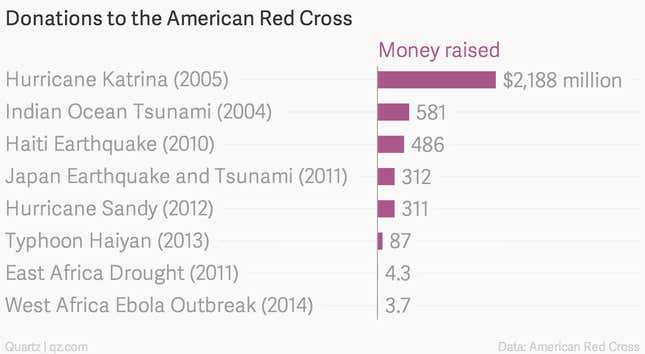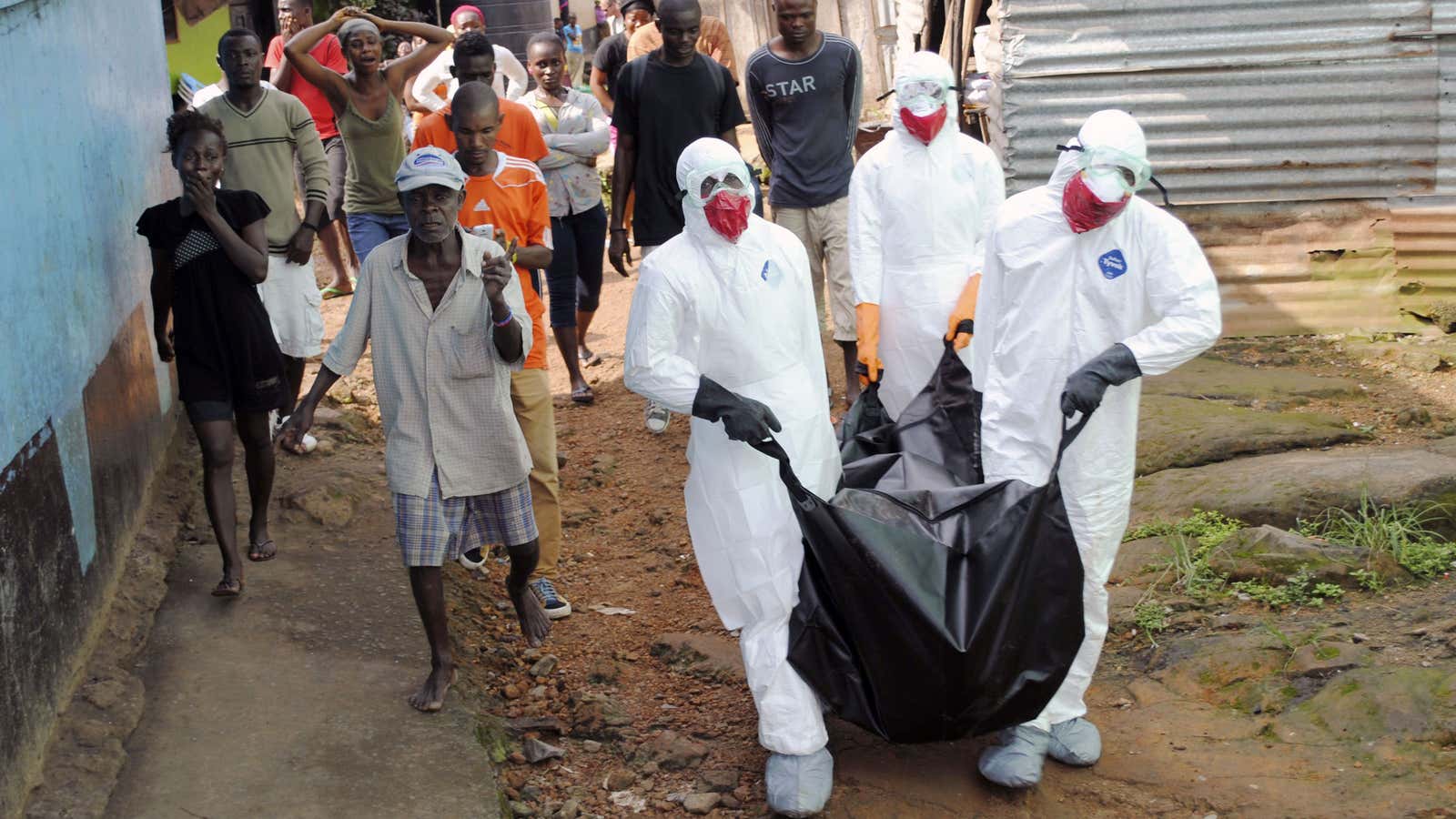To date, the American Red Cross has raised $3.7 million for the Ebola relief effort in West Africa. That’s a very small figure, compared to donations for major natural disasters. In general, Americans donate several orders of magnitude more to the Red Cross for disasters than they do for serious diseases like Ebola, measles, and malaria.
Jana Sweeny, director of international communications for the American Red Cross, tells Quartz that the reason could ultimately boil down to how people perceive the organization’s role globally.
“People associate the American Red Cross with natural disasters, in responding to earthquakes and fires and tornados,” she says. “When those things happen, people immediately turn to us with the assumption that we’ll be doing something to assist, and they trust us with their donations to make what they want to see happen, happen.”
Americans can understand and appreciate the severity of certain natural disasters, and thus be moved to donate. Ebola, on the other hand, is not easily relatable.
“Everybody has lived in a tornado-prone state, or a hurricane-prone state. It’s very easy to associate yourself with, ‘What happens if I come home tonight and my house is gone, where do my kids sleep?” Sweeny says. ”Because we have such advanced medical care and we have clean water and we have all these advantages, it’s a little bit harder to put yourself in the place of, ‘What if this horrible disease spreads to my neighborhood?'”

The images resulting from natural disasters are also more likely to attract donations than for diseases like Ebola. Photos of destroyed buildings and people buried in rubble not only elicit strong reactions, they also suggest to a potential donor that their money can help achieve a tangible goal: buildings can be rebuilt, bodies can be recovered.
Recent photos coming out of West Africa don’t suggest the same hopefulness: men in hazmat suits carry bodies down the street, skeletal shadows huddle in dark, desolate rooms.
Sweeny told CNN that, unlike for other similar crises, there wasn’t even enough interest in the Ebola crisis for the American Red Cross to launch a text-to-donate campaign. The organization currently raises between $2.5 and $4.3 million annually toward its Measles & Rubella initiative, and raised approximately $4.3 million in total for the relief effort surrounding the 2011 drought in the Horn of Africa. Both figures are roughly in line with the $3.7 million it’s raised for Ebola so far.
There are other reasons people are reluctant to donate to the Ebola relief effort. While natural disasters often immediately result in massive death tolls, the numbers of those killed by outbreaks like Ebola tend to increase gradually, taking months before they reach a level that potential donors regard as calamitous. Many people also assume that the CDC or other government agencies will fight the disease, and not NGOs that require funding.
A previous version of this story said the American Red Cross raised $3.21 billion for the 2004 Indian Ocean Tsunami. It actually raised $581 million. This figure has been corrected.
